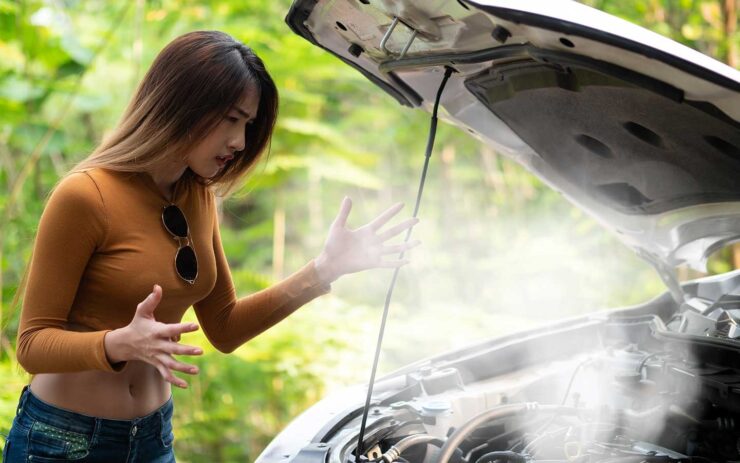You’re cruising down the road, music playing, everything running smoothly — until suddenly, the car stutters, jerks, and slows to a halt. Now you’re stuck, hazard lights blinking, unsure what just happened.
Breakdowns rarely come with much warning. Most people don’t think about what could go wrong until it actually does. But the reality is, there are a few repeat offenders when it comes to cars giving up unexpectedly. Knowing what these are helps you stay ahead of them and avoid that dreaded moment on the side of the road.
Let’s take a look at the most common reasons vehicles stop working when you need them most.
Flat or Damaged Tyres
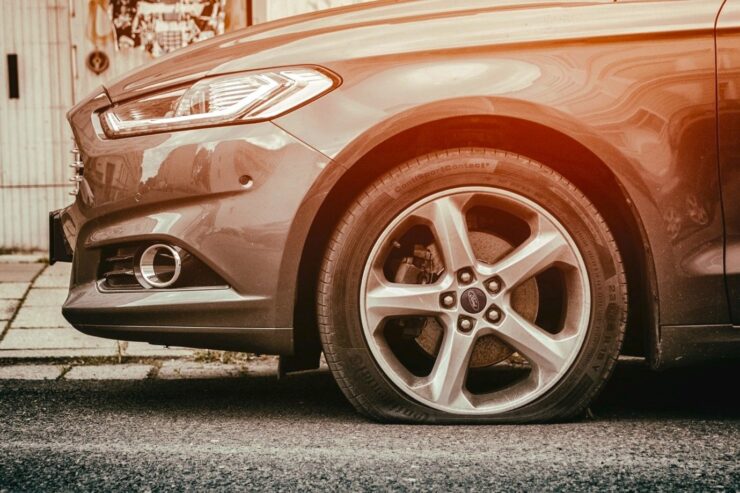
Tyres take a beating. They’re in constant contact with the road and exposed to everything from sharp objects to potholes to sudden temperature changes. A slow leak from a nail or a sudden burst from underinflation can catch you off guard. Worn-out treads are also a problem. If they’re too smooth, you risk hydroplaning or a blowout.
Keeping an eye on tyre pressure and tread depth is one of the simplest things you can do to keep your vehicle rolling. Even with regular checks, you can’t always avoid sudden damage on the road. In those moments, having quick access to recovery services in your area can save a lot of stress.
Dead Battery
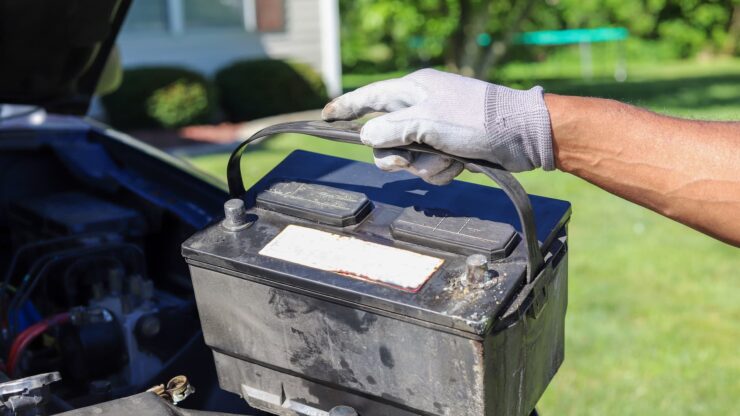
A dead battery is one of the top reasons cars won’t start. They typically last three to five years, depending on climate, usage, and maintenance. If your battery is getting older and you notice sluggish starts or flickering lights, it could be on its way out.
Sometimes, though, batteries die without warning. Leaving your headlights on overnight, using the air conditioning without the engine running, or a faulty alternator, can drain it completely. In colder months, battery performance often dips too, which catches a lot of people off guard in winter.
Jump starting might get you going again, but a replacement is usually needed shortly after.
Electrical Problems
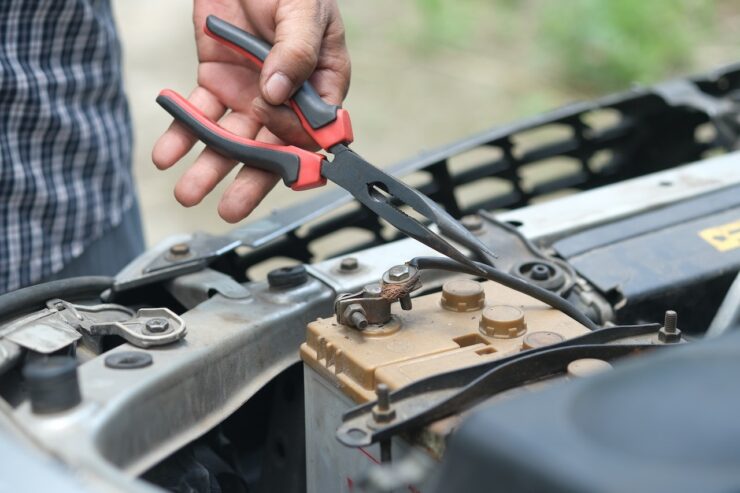
Today’s vehicles are packed with electronic systems — lights, sensors, infotainment, engine management. All these systems rely on proper wiring and electrical flow. A single fault in the circuit can cause bigger issues than you’d expect.
Things like malfunctioning warning lights, power windows not responding, or the car refusing to start altogether are often traced back to electrical gremlins. Faulty fuses, corroded terminals, or worn-out ignition switches can all play a part. These issues can be difficult to spot without diagnostics, which is why they often lead to surprise breakdowns.
Engine Overheating
Engines run hot by design, but they depend on the cooling system to keep temperatures in check. When something disrupts that balance, the result is overheating — and that’s not something you can ignore.
A failing radiator, coolant leak, broken fan, or even a blocked hose can all cause the engine temperature to spike. If your temperature gauge starts creeping up, it’s a sign something’s wrong. Continuing to drive risks severe damage, like a warped cylinder head or blown head gasket.
Always watch for warning signs like steam from under the bonnet or the temperature needle sitting too high. Catching it early can save your engine from permanent damage.
Fuel Problems

Running out of fuel sounds like an avoidable mistake, but it happens more than you’d think, especially if your fuel gauge is faulty. Beyond that, contaminated fuel or water in the tank can also stop your car from running.
Another common issue is a clogged fuel filter. Over time, dirt and debris can build up and block the flow of petrol or diesel to the engine. If the engine is starved of fuel, it will splutter or stall.
Fuel system issues often come with warning signs, like difficulty starting, poor acceleration, or jerking during driving. Ignoring those signs can lead to the car cutting out when you least expect it.
Clutch or Gearbox Failure
Manual transmission drivers know how critical the clutch is. Over time, clutches wear out, especially in vehicles used in stop-start traffic or for towing. A worn clutch might start slipping, making it hard to gain speed, or it may not engage at all.
Gearboxes are usually more robust, but problems can arise if they’ve been mistreated, like changing gears too aggressively or running low on transmission fluid. Grinding noises, gear slippage, or difficulty shifting are early signs.
Unfortunately, once a clutch or gearbox fails completely, your car isn’t going anywhere on its own.
Faulty Alternator
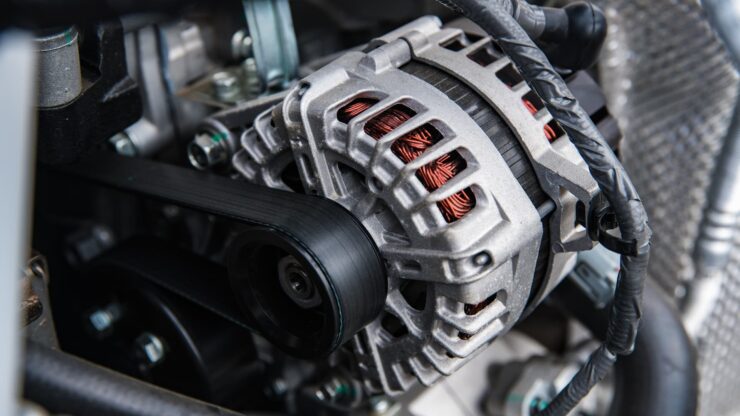
The alternator powers everything electrical while the engine is running and keeps the battery charged. If it fails, the battery drains quickly. You might first notice dimming headlights or electronics behaving oddly.
Eventually, the engine will stall once the battery’s depleted. Unlike a dead battery alone, a faulty alternator means the car won’t keep running even after a jump start.
It’s one of those parts that doesn’t get much attention, until it stops doing its job.
Starter Motor Issues
The starter motor turns the engine over when you start the car. If it fails, the engine won’t start, often leaving you with just a click or a complete silence when you turn the key.
Starter motor failure is typically caused by age or electrical faults. It can also be triggered by problems with the ignition switch or wiring, which makes it a frustrating issue to diagnose if you’re stuck.
Like with battery or alternator problems, you’ll often need assistance to get going again.
When the Unexpected Happens
Breakdowns are inconvenient, sometimes scary, and often expensive. But most of them don’t come out of nowhere. If you know the common causes and stay on top of basic maintenance, you’re far less likely to get stranded.
Still, even the best-prepared drivers can be caught off guard. A nail in the tyre, a battery on its last legs, or a fault you didn’t even know existed… they can all leave you needing help.
That’s why it’s always smart to know where to find recovery services in your area. Whether it’s a jump start, a tow, or just someone to figure out what went wrong, quick support makes all the difference when your car refuses to cooperate.

